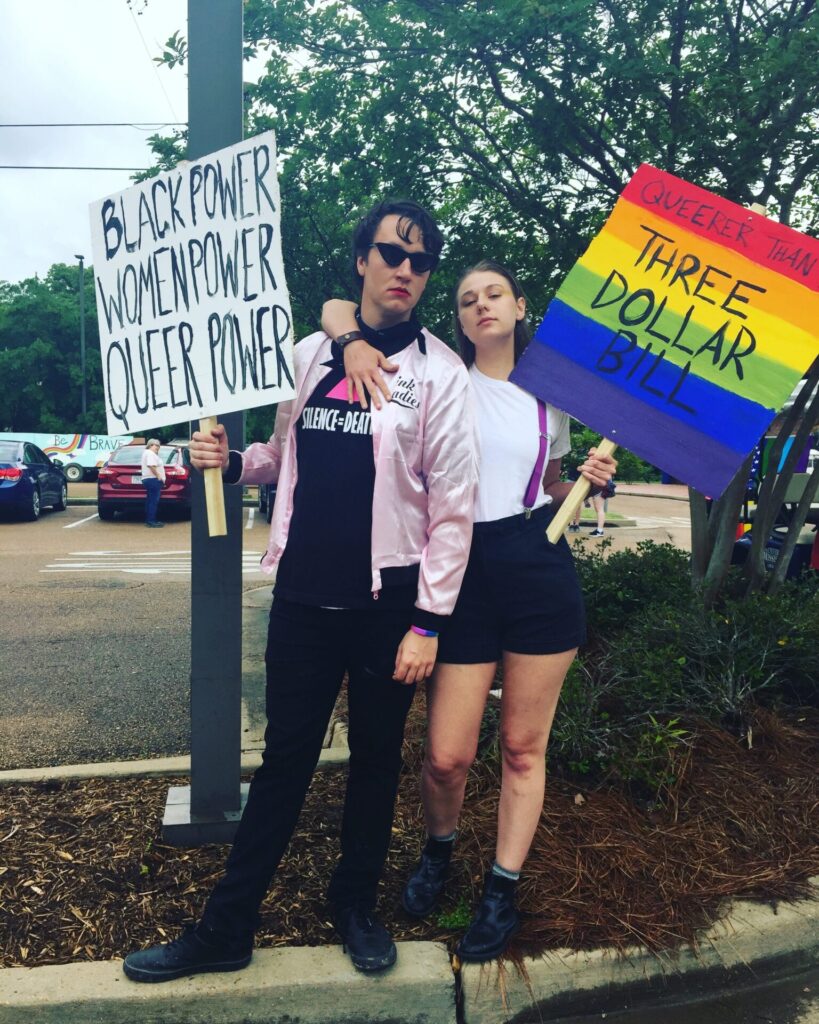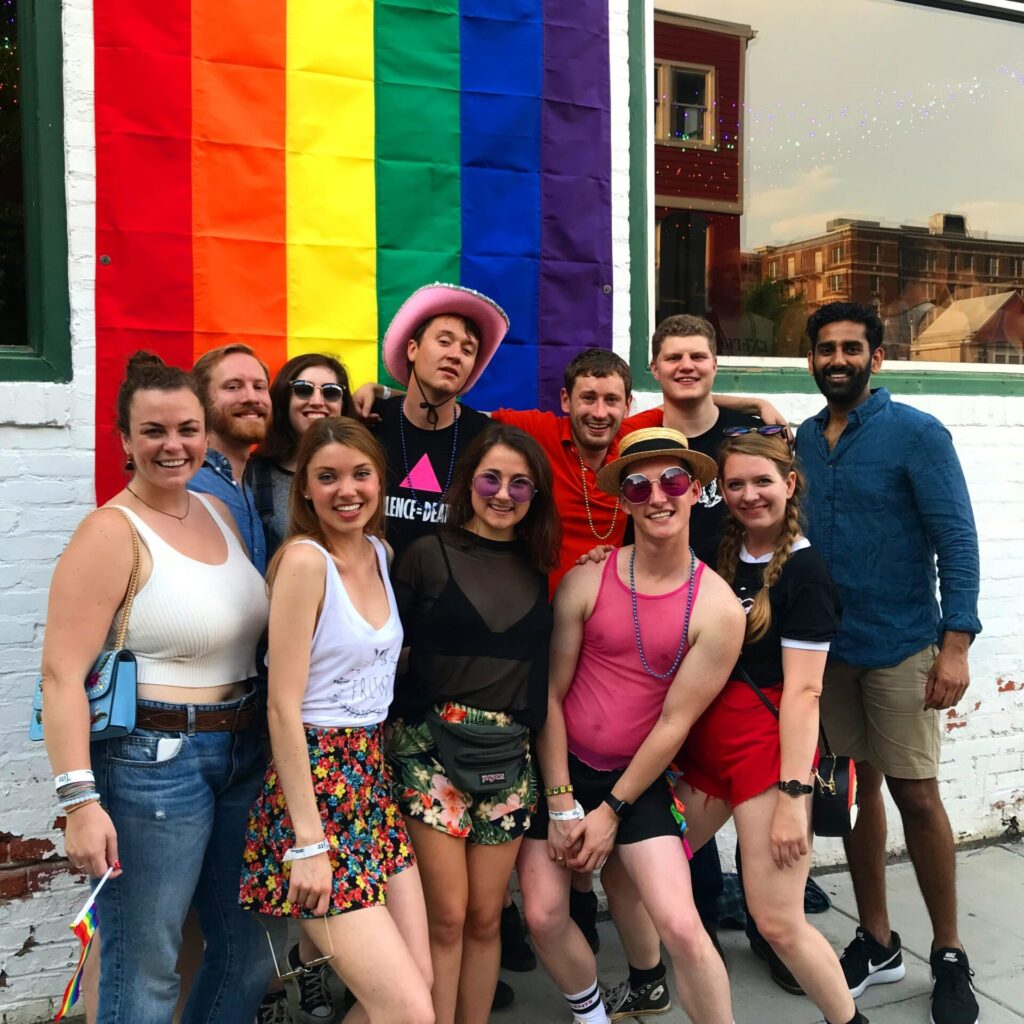By Talbert Toole
Lifestyles Editor
talbert.toole@hottytoddy.com

Gay history reflects the voices of Marsha P. Johnson at the Stonewall Riots, Harvey Milk leading political activism in San Francisco, and Audre Lorde, the self-described ‘black lesbian mother warrior poet’ in New York.
However, many voices are either overlooked or unaccounted for in the Deep South where activism ranged from the liberation of queer folks to integration between races.
In a three-part series, Hottytoddy.com explores the lost voices Hooper Schultz unearthed in his thesis that looks into the lives of queer activists in the South.
Schultz, a University of Mississippi graduate student, recently defended his thesis that explores the history of gay liberation movements in the Southeast and focuses on the founding of the Carolina Gay Association at the University of North Carolina in Chapel Hill in 1975, along with the first three Southeastern Gay Conferences in Chapel Hill and Atlanta from 1976 to 1978.
After working as a marketing director for a magazine for several years, Schultz made the decision to continue his education in graduate school. When he returned to the University of Mississippi, Schultz brought an idea for a project with him: the histories of queer Southerners.
He said he quickly learned that not many people have taken the time to explore Southern queer history.
“I chose oral history as a way to explore queer history because I felt that individuals’ stories are important to save,” Schultz said.
From the Carolina Gay Association to the reckoning of riots at a small movie theater in Atlanta, Georgia, Schultz explored the history of these stories from those who witnessed the activism and events firsthand.
Schultz interviewed Dan Leonard from the CGA and Dave Hayward, who witnessed a firsthand account of the first gay pride parade in Atlanta.
“I hope that people realize that queer activism and history, specifically much of the organizing and political action that made the lives of queer people today better, happened right here in the South,” Schultz said.
The queer liberation movement that many people experience and join in was made possible by dedicated students and community members in the South, he said, including faith communities who were a major wing of Southern LGBTQ activism.
Many documentaries and historical essays reflect the activism in much larger cities that garnered attention across the country; however, it poorly reflects the movement that happened in Southern backyards, according to Schultz.
He said the story of radical, homegrown, Southern LGBTQ activism of the 1970s had been ignored by the broader cultural narrative that imagines early LGBTQ activism only in coastal cities such as New York and San Fransico.
Now, with his thesis defended, Schultz has already begun to shed light on the voices who have been lost from the pages of history books.

Schultz said he has enjoyed conducting oral history interviews and will be able to continue his work through a grant provided by the Sarah Isom Center for Women and Gender Studies in the coming year.
“I have really gained a whole new group of queer friends who function as stand-in queer grandparent figures, and I’ve learned so much from them,” he said.
However, one main difference stood between Schultz and the older generations of queer people he interviewed: how language is constantly changing, specifically how queer and transgendered people have defined themselves over the past several generations.
Schultz said many of the older queer activists he interviewed are distinctly aware of the changing language. Those activists also worry that they will be perceived as regressive if they use the wrong terminology, he said.
“Others don’t really want to use new terms or understandings of gender and sexuality, so there is a gap there,” Schultz said.
Although there seems to be a language gap between generations, Schultz said he continuously receives emails and phone calls from older queer activists asking to help them better understand the gender variance and transgender issues.
“Participating in the project has really encouraged a lot of them in their 70s to get back involved in activism,” Schultz said.
As Oxford celebrates its fourth year of pride, it is also a time of remembrance for the trailblazer that lit the path forward in LGBTQ activism.
This year’s theme pays homage to the Stonewall Riots that helped ignite the movement in June 1969. Oxford has expanded its Pride celebration over the past few years. However, Schultz said the LOU community still has some challenges ahead.
“I think one of our biggest challenges with Pride and LGBTQ organizing in the LOU community is making sure that we are providing space for our most vulnerable community members,” he said.
Schultz said the most secure people in the LGBTQ community—white and cisgender queer men—need to recognize that their liberation is bound up with the liberations of their transgender siblings, with people of color, women, immigrants and the poor.
For more information and list of this year’s Oxford Pride events, read “Event List: Oxford Pride Celebrates Fourth Year this Week.”
